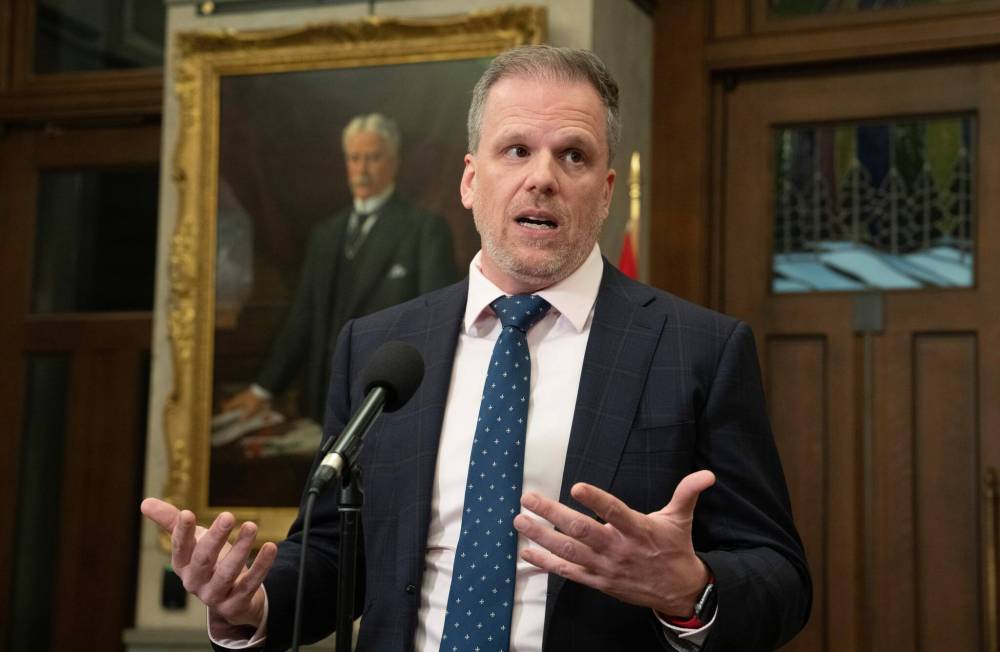A promising start to pharmacare
Advertisement
Read this article for free:
or
Already have an account? Log in here »
To continue reading, please subscribe:
Monthly Digital Subscription
$0 for the first 4 weeks*
- Enjoy unlimited reading on winnipegfreepress.com
- Read the E-Edition, our digital replica newspaper
- Access News Break, our award-winning app
- Play interactive puzzles
*No charge for 4 weeks then price increases to the regular rate of $19.00 plus GST every four weeks. Offer available to new and qualified returning subscribers only. Cancel any time.
Monthly Digital Subscription
$4.75/week*
- Enjoy unlimited reading on winnipegfreepress.com
- Read the E-Edition, our digital replica newspaper
- Access News Break, our award-winning app
- Play interactive puzzles
*Billed as $19 plus GST every four weeks. Cancel any time.
To continue reading, please subscribe:
Add Free Press access to your Brandon Sun subscription for only an additional
$1 for the first 4 weeks*
*Your next subscription payment will increase by $1.00 and you will be charged $16.99 plus GST for four weeks. After four weeks, your payment will increase to $23.99 plus GST every four weeks.
Read unlimited articles for free today:
or
Already have an account? Log in here »
Hey there, time traveller!
This article was published 01/03/2025 (260 days ago), so information in it may no longer be current.
Amid the torrent of bad news coming at Canadians from many directions — but especially south — it’s good to take time to appreciate a positive move when it happens.
On that note, Manitoba has the distinction of being the first province to jump aboard the federal government’s national pharmacare program, which will see diabetes medication and birth control covered by federal funding.
Manitoba’s deal with Ottawa — which will see the federal government spend $219 million on pharmacare for the province over four years — is hopefully one of many to be inked across the country. Manitoba’s coverage is expected to start in June.

Adrian Wyld / the canadian press files
Federal Health Minister Mark Holland
These baby steps into a comprehensive national pharmacare are welcome — and overdue. As much as Canadians take pride in our national health care (despite its struggles), the system has long covered less than it could. Between pharma- care and federally supported dental care for Canadians, the country is heading toward a much more holistic way of covering its citizens’ needs.
However, should pharmacare become a success and broaden to cover more medications down the line, it doesn’t do much to solve more immediate crises in health care. Manitoba continues to deal with long wait times and staffing issues. Removing a fee for patients at the pharmacist’s counter isn’t going to do anything to help those big, structural problems — we must continue to push government to find solutions to those problems.
However, anything that lightens the financial load for Manitobans, and eliminates hassle (who likes having to claim a health-care expense after the fact?) is undoubtedly a good thing. And yes, there’s a political angle to it as well — it’s heartening to see government, at any level, take steps to try to improve the lives of Canadians, as our neighbours to the south deal with a government which is gutting itself and seemingly engineering future precarity at every turn.
Conservative critics bemoan the idea that Ottawa’s universal program will have the effect of kicking Canadians off their workplace insurance, echoing a common complaint when the subject of state-run health care is proposed at all in the U.S. It seems an ill-advised line of attack.
So long as the federal program works, it’s unlikely most Canadians will mind that they no longer have to pay into an additional insurance plan — or pay as much, anyway — if their national insurance grows to cover more types of care. Yes, between national and workplace or other private benefits, Canadians do have pretty comprehensive health-care coverage. But why juggle two, or three, different health insurances when one can do the job? Provided it’s run well, a “no-muss, no-fuss proposition” is a winner.
The question is: what comes next for this new pharmacare program?
Federal officials have been clear that diabetes medications and birth control are only the first prescriptions to be covered under this new program, and that expanding it will not be a quick or easy process — out of necessity, if the program is to last. This applies not just to expanding the program but laying the ground floor, by bringing other provinces and territories into the fold.
“If this is going to be enduring, it has to be done right,” federal Health Minister Mark Holland said this week.
That’s quite right, but that’s no reason to drag one’s heels on the next step, either. Many Canadians — those facing high medication costs for chronic conditions, for instance — are surely awaiting word on where the federal government takes this program next.
And all of us hope that this good sign is just one of many to come, and Ottawa’s multibillion-dollar plan to bring pharmacare to Canadians proves to be a successful treatment for some of the things which ail us.

